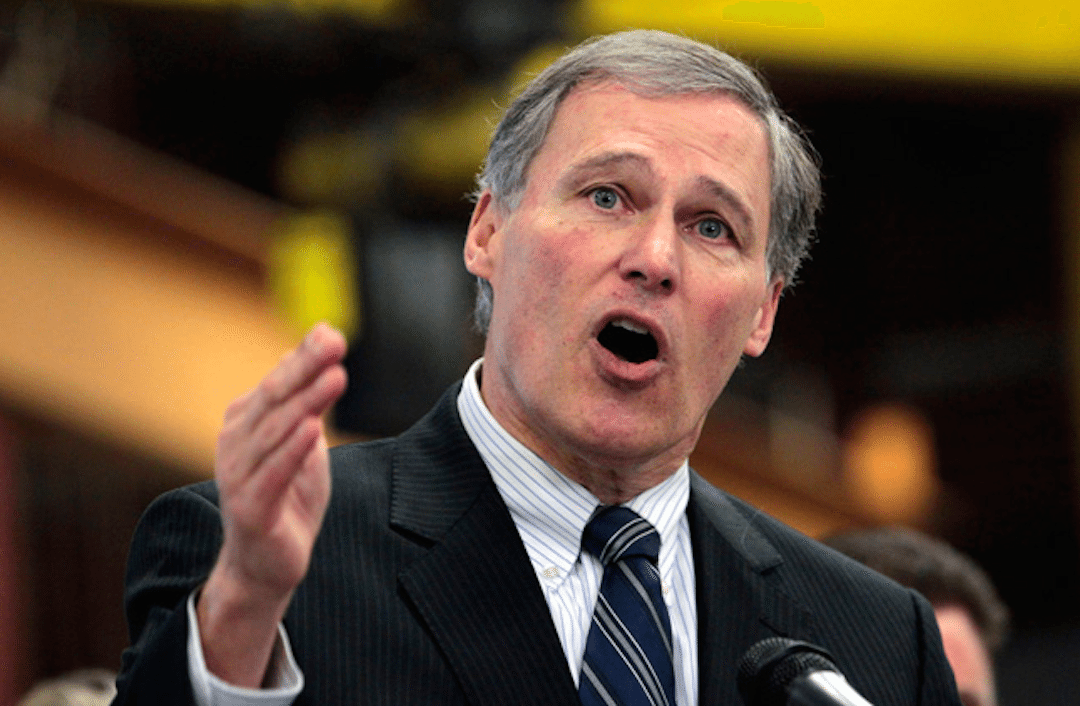Early this month, Jay Inslee’s Department of Ecology pulled his carbon rule in order to make changes to it. The carbon rule — hastily written on Inslee’s order last year — carried the obvious consequence of companies simply leaving the state and doing business elsewhere due to increased costs. The highly negative feedback submitted by stakeholders forced Ecology to pull back the scheme from consideration.
It’s back to the drawing board for Ecology. But, just what “improvements” to the carbon rule can the public expect?
Ecology indicated that changes would include “clarifying compliance options, transparency in the proposed crediting system, and considerations for Washington manufacturers whose products are sensitive to global pricing.”
What Ecology did not mention (perhaps because there is no “fix” to the problem) is any plan to link any future scheme with the cap-and-trade systems in California and Northeast states, known as the Regional Greenhouse Gas Initiative (RGGI).
Inslee promised that his carbon rule would link to these systems. Only, as Shift reported, that didn’t happen with his initial scheme. By every indication, Inslee’s bureaucrats failed to negotiate a link to the California and RGGI markets. But, that didn’t stop Ecology from including emissions allowances from California and RGGI states as part of the state’s first carbon rule proposal.
The RGGI states, however, gave their inclusion in Inslee’s carbon scheme for our state a big thumbs down. RGGI Inc. stated, “Although the RGGI states commend Washington for moving forward to limit greenhouse gas emissions, the proposal raises substantive issues relating to the potential use of RGGI allowances.”
RGGI states did not elaborate on the “substantive issues” but, then again, they didn’t really have to. The statement says it all. It’s a not-so-subtle way of saying, “Nice try, but we’re not interested.”
When asked, California had an interesting (read: harsh) response to Inslee’s carbon rule. A spokesman for California’s Air Resources Board stated, “At this point we are aware of and monitoring development of Washington’s proposal.” Here’s the thing, at that “point,” Inslee had already released the details of his plan. It wasn’t, as California suggested, under development (though, given the Inslee administration’s proven incompetence across a wide range of agencies, it’s easy to see how that mistake was made).
The reality is that California and RGGI states have no incentive to link their systems to Washington State. In fact, they have an incentive not to participate. Linking to Washington reduces emission caps for the respective programs. That risks taking credits away from companies in California and the Northeast, resulting in a supply shortage. The costs of compliance would increase as a result.
On the other hand, in Washington State, any carbon rule scheme that does not connect to the California or RGGI markets would result in very high costs for manufacturers to meet the carbon reduction targets.
It is highly unlikely Inslee will succeed in garnering the cooperation he promised. But, it is also highly unlikely that reality alone will prevent our green governor from trying to impose an expensive carbon rule via executive order in the future.
If there is one thing that Inslee has proved again and again, it’s that he is willing to sacrifice anything for his extreme “green” agenda. He won’t think twice about breaking promises and sacrificing our state’s economic wellbeing or working families for his carbon rule — certainly, those considerations have not stood in his way in the past.




